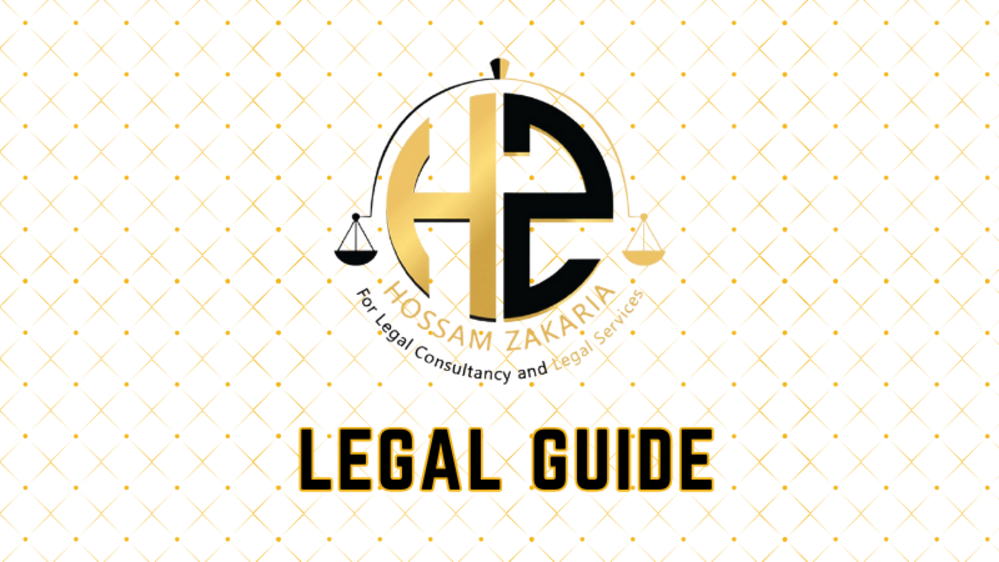Introduction: The Critical Intersection of AI and UAE Corporate Law in 2025
As the adoption of artificial intelligence (AI) accelerates across sectors in the United Arab Emirates, the evolving regulatory framework imposes new compliance responsibilities on organizations integrating AI into decision making. Notably, the UAE has moved decisively to ensure that the rapid digital progress aligns with national interests, ethical standards, and the protection of individual rights, as reflected in landmark legal frameworks such as Federal Decree Law No. 34 of 2021 on Combatting Rumors and Cybercrimes and the recently updated UAE Personal Data Protection Law (Federal Decree Law No. 45 of 2021). The UAE Council for Artificial Intelligence and Digital Transactions has been pivotal in driving responsible innovation, signaling governmental vigilance in regulating emerging technologies.
This article explores the multifaceted compliance obligations for corporations using AI in the UAE, particularly in light of 2025 legal updates, and offers consultancy-grade insight for executives, general counsels, compliance teams, and HR managers. The focus lies not only on understanding statutory requirements but also practical strategies to ensure robust compliance, mitigate legal risks, and foster an ethical AI governance culture within the UAE’s ambitious business landscape.
Table of Contents
- Legal Overview: Foundational AI and Data Laws in the UAE
- Key Regulatory Developments and 2025 Updates
- Core Compliance Areas for Corporate AI Deployment
- Governance, Transparency, and Accountability in AI
- Risks, Liabilities, and Case Studies
- Practical Strategies for Achieving AI Legal Compliance
- Conclusion: Future-Proofing Corporate AI Compliance in the UAE
Legal Overview: Foundational AI and Data Laws in the UAE
Federal Decree Law No. 34 of 2021: Combatting Rumors and Cybercrimes
This comprehensive law covers cybercrimes, digital fraud, and misuse of digital platforms and applies explicitly to AI-driven platforms and automated corporate systems. Articles 3, 6, and 41–43 of the Decree impose strict obligations on organizations regarding digital security, data protection, and the accountability of legal personalities for cybercrimes committed through AI-enabled processes.
Federal Decree Law No. 45 of 2021: Personal Data Protection in AI Contexts
As the UAE’s first standalone data privacy law, this Decree Law sets out requirements concerning lawful grounds for processing, data subject rights, transparency, and security – all directly affecting AI systems leveraging personal data. Key provisions mandate organizations to implement privacy-by-design, conduct impact assessments for high-risk AI projects, and establish clear data subject consent mechanisms.
Resolutions and Ministerial Guidelines: Specific AI Regulations
Building on statutory foundations, several Cabinet Resolutions and sector-specific guidelines address AI ethics, transparency, and digital transformation. The UAE Council for AI’s National AI Strategy 2031 serves as an overarching policy blueprint, while sectoral ministries issue detailed compliance guidance for industries such as finance, healthcare, and employment.
| Legal Instrument | Key Provisions on AI | Relevant Authority |
|---|---|---|
| Federal Decree Law No. 34 of 2021 | Corporate liability, AI-related cyber offenses, digital evidence | Ministry of Justice |
| Federal Decree Law No. 45 of 2021 | AI in data processing, impact assessments, consent requirements | UAE Data Office |
| National AI Strategy 2031 | Principles-based AI governance, ethical objectives | UAE Council for AI |
| Cabinet Resolutions (various sectors) | AI applications in healthcare, finance, HR | Sectoral Ministries |
Key Regulatory Developments and 2025 Updates
Recent Changes in the Legal Landscape
With a view to remaining at the forefront of digital innovation, the UAE has released several pivotal amendments and regulations since 2023, drastically widening AI governance obligations for entities operating in the country. Significant developments include:
- Amendments to the Personal Data Protection Law (PDPL) enhancing data subject controls over AI-driven processing.
- Introduction of explicit corporate accountability for AI-generated decisions (Federal Decree Law No. 34/2021, Article 43).
- Sectoral guidance on anti-discrimination in algorithmic decision making, especially relevant for recruitment, lending, and insurance.
- Mandatory AI Impact Assessments for all large-scale or high-risk AI implementations effective 2025.
Comparative Table: Before and After 2025 Updates
| Legal Provision | Before 2025 Update | After 2025 Update |
|---|---|---|
| AI Impact Assessments | Not always mandatory | Compulsory for high-risk AI projects |
| Corporate Liability for AI | Principles, rarely enforced | Direct liability with enforcement mechanisms |
| Data Processing Transparency | General obligation | Specific disclosures for AI use mandatory |
| Anti-Discrimination | Broad prohibitions | Algorithmic discrimination specifically addressed |
Visual Suggestion: Compliance Timeline Flowchart showing the evolution of AI-related obligations from 2021 to 2025 for illustrative clarity.
Core Compliance Areas for Corporate AI Deployment
1. Data Protection and Privacy
Corporate AI systems routinely rely on vast quantities of personal data. Under Federal Decree Law No. 45/2021 and recent Ministry of Justice clarifications, companies must:
- Define clear lawful processing bases for any data used by AI (consent, legitimate interest, contractual necessity).
- Ensure AI algorithms are designed with privacy-by-default and privacy-by-design principles (Article 7 PDPL).
- Maintain robust data mapping and audit trails to track data flows through AI pipelines.
- Afford data subjects rights of access, erasure, objection, and data portability where their information is processed by AI systems.
2. Transparency and Explainability
The Ministry of Human Resources and Emiratisation (MOHRE) and sectoral regulators now demand evidence that AI-driven organizational decisions, such as in HR and customer service, can be explained to individuals and authorities. This enshrines a fundamental right to understanding the logic behind major automated decisions impacting personal, financial, or legal status.
- Automated recruitment screening tools must provide candidates with reasoning and appeal mechanisms.
- Financial service providers using AI for lending decisions must clearly communicate criteria, risk assessment factors, and recourse options.
3. Bias and Discrimination Mitigation
The UAE Government Portal emphasizes that algorithmic bias—where AI inadvertently produces discriminatory outcomes—now constitutes a compliance risk attracting regulatory scrutiny. Organizations should:
- Conduct algorithmic fairness testing at regular intervals (before deployment and on an ongoing basis).
- Document the steps taken to minimize bias and retain evidence for compliance audit purposes.
4. Security and Cybercrime Prevention
AI introduces new vectors for cybersecurity threats. Federal Decree Law No. 34/2021 mandates organizations to:
- Implement cybersecurity measures tailored for AI vulnerabilities (including adversarial attacks or data poisoning).
- Report AI-induced security incidents within mandated timeframes.
Governance, Transparency, and Accountability in AI
Establishing Corporate AI Governance Structures
Legal compliance in the AI domain is inseparable from robust corporate governance. Companies should establish AI governance committees or designate responsible officers to oversee:
- Policy development for AI adoption, use, and risk management
- Ongoing training for staff involved in AI-related projects
- Regular internal audits and compliance reviews
Board and Senior Management Responsibility
Recent legal practice in the UAE makes clear that ultimate accountability for AI compliance, especially in cases of harm or data breach, lies with the Board and C-suite. Directors must:
- Integrate AI risk into enterprise risk management frameworks
- Be able to demonstrate informed oversight and diligence in AI-related decisions
Table: Organizational AI Responsibility Structure
| Role | Key AI Compliance Functions |
|---|---|
| Board of Directors | Strategic oversight, risk assessment, legal accountability |
| Chief Data Officer / AI Compliance Officer | Policy implementation, reporting, internal audit |
| IT Security | Technical controls, incident response |
| Human Resources | Bias monitoring, employee training |
| Legal/Compliance Team | Assessment of regulatory risk, advice on emerging AI rules |
Risks, Liabilities, and Case Studies
Legal Exposure for Non-Compliance
With legal reforms increasingly accompanied by robust enforcement, entities failing to address AI-associated risks face significant penalties. These include:
- Regulatory fines (e.g., up to AED 10 million for serious data breaches under PDPL)
- Suspension or revocation of trading licenses for egregious violations
- Reputational and commercial harm from publicized infractions
Moreover, executive and managerial personnel can, under certain conditions, be held personally liable under Federal Decree Law No. 34/2021, particularly if negligence or willful disregard for compliance is established.
Case Study 1: AI Bias in Recruitment
An international bank headquartered in Dubai deployed an AI-driven candidate screening tool. An internal audit revealed the system disproportionately filtered out female applicants for managerial roles. Under the 2025 anti-discrimination update, the bank was compelled to suspend the tool, undertake a comprehensive bias audit, and publish rectification measures. Non-compliance could have resulted in severe penalties issued by MOHRE.
Case Study 2: Data Breach via AI Chatbot
A large e-commerce firm utilized an AI-powered customer service chatbot that inadvertently exposed sensitive customer data due to a configuration error. Under the PDPL and Federal Decree Law No. 34/2021, the firm faced investigations by the UAE Data Office, ultimately incurring a penalty and being required to overhaul data security protocols.
Visual Suggestion: Penalty Comparison Chart
A table or visual showing the range of penalties pre- and post-2025 updates for AI-related compliance failures enables stakeholders to appreciate the growing financial and legal impact of non-compliance.
Practical Strategies for Achieving AI Legal Compliance
Step 1: Conduct a Comprehensive AI Legal Risk Assessment
Organizations should map all existing and planned AI deployments, evaluating each against relevant UAE laws and sectoral guidelines. This involves:
- Identifying personal data processed by AI
- Assessing potential risks for bias, discrimination, and lack of transparency
Step 2: Establish or Update AI Governance Policies
Policies should include explicit references to the UAE’s AI, data protection, and cybercrime laws and include measures for auditability, explainability, and redress.
Step 3: Appoint Dedicated Compliance Personnel
Designating a Data Protection Officer (DPO) and, where necessary, an AI Compliance Officer enhances accountability and ensures subject matter expertise.
Step 4: Implement Mandatory AI Impact Assessments
Develop standard operating procedures for AI Impact Assessments, ideally embedding them in the project management cycle for any new AI system affecting personal data or critical decisions.
Step 5: Continuous Monitoring and Training
Regular employee training on AI-specific legal risks and ongoing monitoring of AI models for unexpected outcomes are now regulatory expectations.
Compliance Checklist Table
| Compliance Task | Status | Responsible Department |
|---|---|---|
| AI Data Mapping Completed | Yes/No | IT/Data Team |
| Privacy-by-Design Implemented | Yes/No | Product Development |
| AI Impact Assessment Conducted | Yes/No | Risk/Compliance |
| Bias Mitigation Protocols in Place | Yes/No | HR/Legal |
| Incident Reporting Framework Active | Yes/No | IT Security |
Visual Suggestion: Process Diagram illustrating the end-to-end AI compliance journey from design to deployment and review.
Conclusion: Future-Proofing Corporate AI Compliance in the UAE
The integration of AI into the fabric of UAE business necessitates a proactive and strategic approach to legal compliance, especially with the maturing regulatory regime set to expand further in the coming years. The current landscape, shaped by Federal Decree Laws, Cabinet Resolutions, and sectoral guidance, places heavy emphasis on ethical, transparent, and accountable AI deployment. While the regulatory framework is robust, it also enables compliant organizations to harness AI’s full potential and drive competitive advantage.
Key recommendations for UAE businesses include:
- Regularly review AI systems for compliance with emerging laws and updates
- Invest in staff training and internal expertise on AI governance
- Foster a culture of transparency and ethical technology use
- Engage with legal and regulatory developments through consultation and industry networks
As AI technology evolves, so too will the regulatory expectations. By embedding a compliance-first approach today, organizations can protect stakeholders, mitigate risks, and lead the region in responsible AI adoption.



